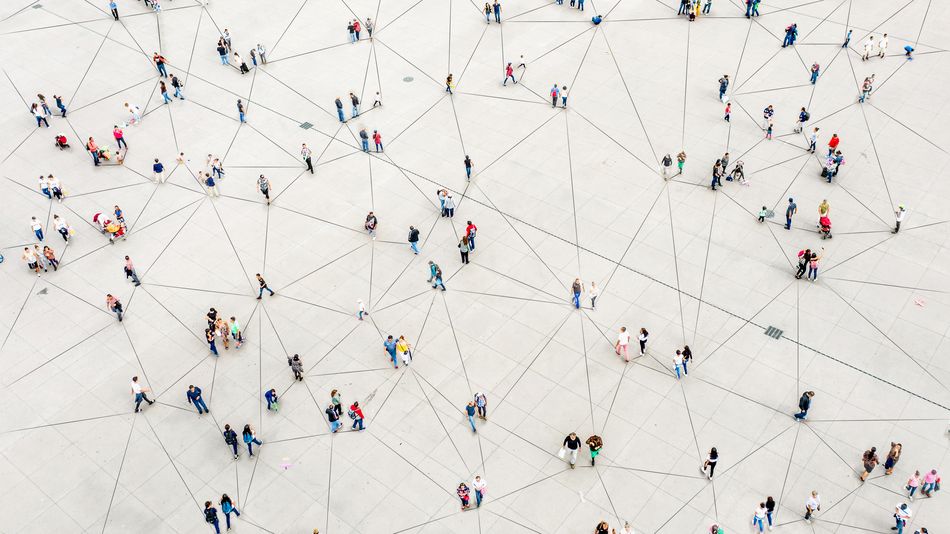Coronavirus
Facebook Will Now Help You Identify Covid-19 Hotspots Early

Most surveys on Facebook are pointless. This one might end up saving lives.
Facebook has partnered with researchers at Carnegie Mellon University to build a map meant to track symptoms and potentially predict coronavirus hot spots. Mark Zuckerberg announced the effort in a Washington Post op-ed, writing “We’re hopeful that this will help governments and public health officials around the world who might not otherwise have this kind of precise data to make decisions in the weeks and months ahead.”
Here’s how it works. Facebook has been showing a survey to users within the social network. Users can take this survey if they want to — it’s entirely voluntary. They’ll answer questions about whether they’re experiencing symptoms associated with COVID-19, such as cough or fever.
That data then gets sent to the research team at Carnegie Mellon (not Facebook), which uses it to create population models of people experiencing symptoms. The idea is that symptoms are the “precursor” to hospital visits, so an uptick in symptoms in a particular area could help officials decide where to send health resources.
“The survey responses combined with other data such as medical claims and medical testing, will enable the CMU team to generate estimates of disease activity that are more reflective of reality than what is now available from positive coronavirus tests alone,” an announcement of the project from Carnegie Mellon reads.
The project has resulted in a heat map of sorts, showing the percentage of the population, broken down by county, that’s self-reporting coronavirus symptoms.

Researchers are encouraged by the results. After its initial survey of 1 million people, symptom reports “correlate” with testing data. The fact that the number of self-reported symptoms are proportional to official test numbers is what makes the researchers think the survey is accurate and useful.The University of Maryland is also partnering with Facebook and CMU to expand the survey, and Google is contributing some data, too, through a survey served to its users.
Facebook has already launched a coronavirus information hub, and has a “data for good” portal that gives researchers access to population data. Previously, Facebook refuted reports that it was helping the government by providing location data to assist contact tracing.
This mantle was taken up by Google and Apple, who are collaborating on Bluetooth-based contact tracing programs. With the recent scrutiny of privacy in Big Tech, these companies have to walk the line between providing useful information and not infringing on people’s privacy.
Kenya Insights allows guest blogging, if you want to be published on Kenya’s most authoritative and accurate blog, have an expose, news TIPS, story angles, human interest stories, drop us an email on [email protected] or via Telegram
-

 Grapevine1 week ago
Grapevine1 week agoAlleged Male Lover Claims His Life Is in Danger, Leaks Screenshots and Private Videos Linking SportPesa CEO Ronald Karauri
-

 Lifestyle1 week ago
Lifestyle1 week agoThe General’s Fall: From Barracks To Bankruptcy As Illness Ravages Karangi’s Memory And Empire
-

 Grapevine3 days ago
Grapevine3 days agoRussian Man’s Secret Sex Recordings Ignite Fury as Questions Mount Over Consent and Easy Pick-Ups in Nairobi
-

 Investigations2 weeks ago
Investigations2 weeks agoEpstein Files: Sultan bin Sulayem Bragged on His Closeness to President Uhuru Then His Firm DP World Controversially Won Port Construction in Kenya, Tanzania
-

 News2 weeks ago
News2 weeks agoAUDIT EXPOSES INEQUALITY IN STAREHE SCHOOLS: PARENTS BLED DRY AS FEES HIT Sh300,000 AGAINST Sh67,244 CAP
-

 Business2 weeks ago
Business2 weeks agoKRA Can Now Tax Unexplained Bank Deposits
-

 Investigations1 week ago
Investigations1 week agoEpstein’s Girlfriend Ghislaine Maxwell Frequently Visited Kenya As Files Reveal Local Secret Links With The Underage Sex Trafficking Ring
-

 News1 week ago
News1 week agoState Agency Exposes Five Top Names Linked To Poor Building Approvals In Nairobi, Recommends Dismissal After City Hall Probe















